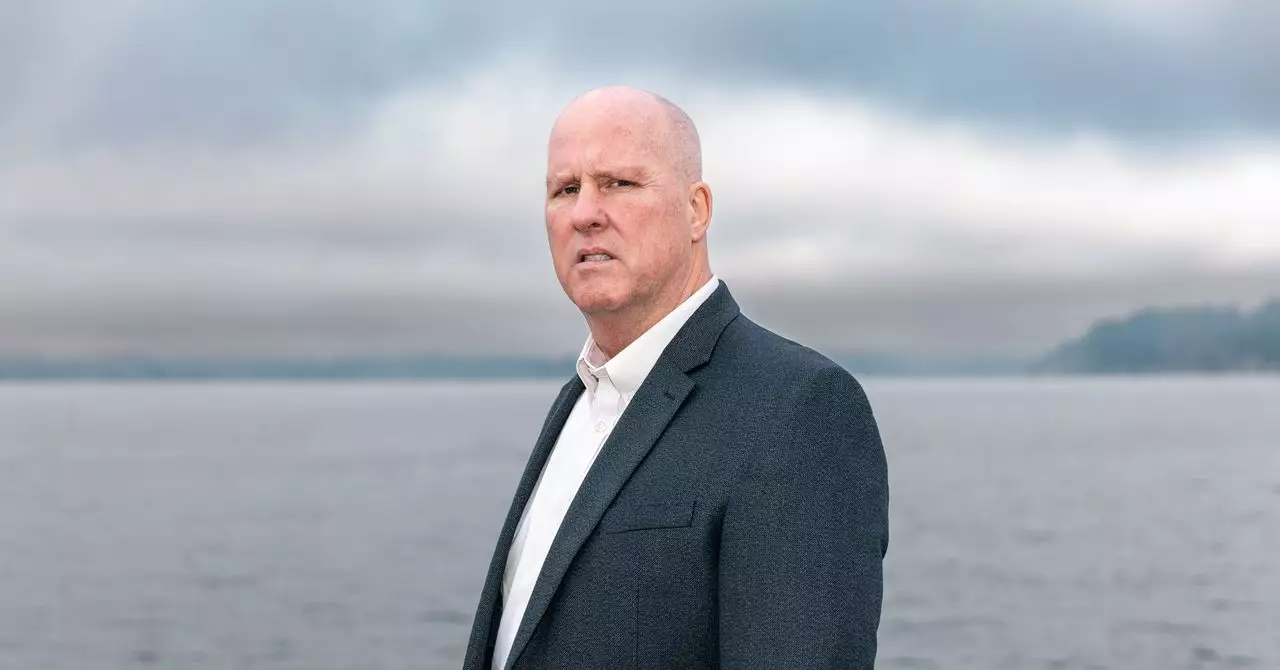In a world where air travel is woven into the fabric of daily life, the tragic losses that families endure during operational failures can feel overwhelmingly silent. Following a crucial hearing in October, a poignant gathering unfolded between affected families and aviation safety advocates, including Pierson and Jacobsen. Amid the clinking of glasses and the gentle hum of conversation in a Mexican restaurant, a documentary crew captured the raw emotions of the moment. It was here that the protagonist, Pierson, bestowed glass awards upon families who have shown remarkable courage and leadership in the struggle for aviation safety reform.
Chris Moore—a name synonymous with resilience—reflected on the surrealism of receiving an award amidst his drawn-out battle against profound grief. The gravity of those five years weighed heavily, yet through the act of seeking accountability for the egregious failures that led to aviation disasters, Moore found a semblance of solace. It begs the question: can recognition serve as a balm for aching hearts?
The Weight of Responsibility
As the conversation deepened, it became evident that Pierson, burdened by a distinct kind of grief—one laced with self-reflection and questions—wondered if he could have altered the course of events. The long exhale that escaped him hinted at another layer of complexity: guilt, or perhaps the weight of responsibility. A haunting thought shared by Doug Pasternak, the lead investigator of the Max report, spotlighted Pierson’s internal struggle. While he couldn’t single-handedly prevent catastrophic accidents, the drive to seek justice and prevent further tragedies became his mission.
This sense of accountability dysfunctionally intertwines with human emotion. Pierson’s refusal to be a mere ‘yes-man,’ willing to shake hands with those in corporate and regulatory circles who previously overlooked glaring safety concerns, turns the trajectory of their roles upside down. Instead, his commitment morphed him into the indispensable voice clamoring for change in a climate riddled with complacency.
The Relentless Pursuit for Truth
Despite the hurdles imposed by regulatory agencies, Pierson’s tenacity to pursue truth remains unyielding. The aftermath of each crucial report launching him into a relentless cycle of documentation and investigation reinforces the notion that accountability is a habit, not an action. He pours through the intricate minutiae of reports, ravenously pursuing answers, fully aware that even the smallest insight could represent a critical breakthrough in understanding the forces behind the ill-fated crashes.
However, faced with bureaucratic constraints that hamper transparency, Pierson thrived amidst adversity, challenging complacency wherever it may reside. The impending fate of Boeing in 2025 added additional pressure, as all eyes are on the company to either recover under new leadership or spiral into a structural decline. The heightened stakes serve as a reminder of the enormous responsibility resting on the shoulders of the aviation industry—a responsibility that encompasses the safety of passengers and the integrity of engineering practices.
A New Generation of Activism
Pierson is not backing down. His foundation, now accepting its first influx of donations, signifies the evolution of grief into actionable advocacy. As he and his team pivot their focus to monitor other aircraft models and collaborate with academic institutions for data analysis, Pierson embodies the essence of frustration turned into productive activism. In asserting the need for systemic change, their endeavors amplify the message: accountability must be an intrinsic part of the aviation narrative moving forward.
What is especially noteworthy is Pierson’s fervor to remain vigilant and visible in a landscape that often favors muted voices. Unlike so many whose anger dissipates, he has strategically established himself as a persistent presence, effectively revolutionizing the discourse surrounding air safety. The determination to not let the past be forgotten holds powerful implications for future corporate accountability.
The Discomfort of Trust in Aviation
Ultimately, it is a poignant irony that encapsulates air travel: the notion that flying should embody convenience often masks a profound and unsettling truth—boarding a plane inherently requires an extraordinary leap of faith. As I prepared for my own flight, bound for San Francisco, the weight of Pierson’s farewell resounded in my mind. The truth laid bare in the US House committee’s Max investigation rattles preconceptions, forcing all of us—casual travelers and aviation enthusiasts alike—to confront the uncomfortable reality that trust in the system cannot be taken for granted.
Aviation, with its statistics and layers of engineering excellence, has conditioned us to compartmentalize risk. Yet, as reports and personal testimonies reveal, beneath the surface lies an undeniable truth: every time we step onto an aircraft, we enter into an intricate dance between faith and the human condition—a dance that, for many, has already cost too much.

